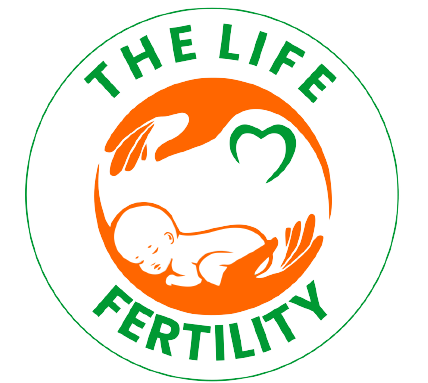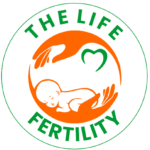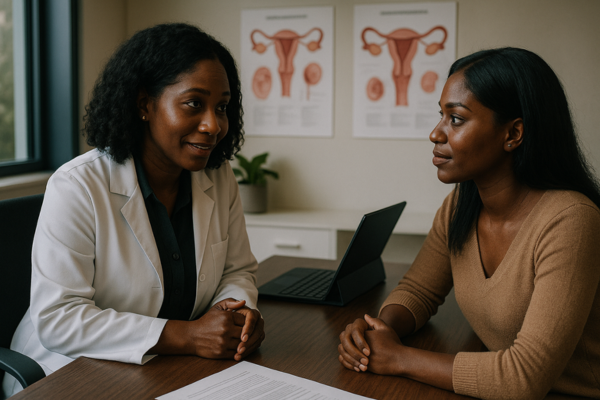Introduction: Ovulation Boosters: Pathways to Conception
Ovulatory dysfunction is a common hurdle for individuals trying to conceive. The good news is that understanding ovulation booster options opens up various pathways to building your family. This comprehensive guide will walk you through the essential steps in identifying and addressing ovulation problems.
We will explore the underlying causes and delve into the effective treatments available for boosting ovulation. For those seeking answers about ovulation boosters, know that a clear understanding of your body and the right interventions can significantly improve your fertility potential.
This resource aims to provide you with practical knowledge and empower you on your journey to overcoming ovulatory dysfunction with an ovulation booster.
Understanding Ovulatory Dysfunction and Its Impact on Fertility
At its core, ovulation is the monthly release of a mature egg from the ovary, a process absolutely vital for natural conception. This intricate event is governed by a delicate interplay of hormones, including Follicle-Stimulating Hormone (FSH) and Luteinizing Hormone (LH), which stimulate follicle development and egg release.
When this process is disrupted, it leads to ovulatory dysfunction. Common types include anovulation, the complete absence of ovulation, and oligo-ovulation, characterized by infrequent or irregular ovulation. Even subtle issues like a luteal phase defect, where progesterone production is inadequate, can hinder implantation.
Recognizing the symptoms of ovulatory dysfunction, such as irregular menstrual cycles, absent periods, or the lack of typical ovulation signs, is the crucial first step in understanding how an ovulation booster can help address its impact on your ability to conceive.
Diagnosing Ovulatory Dysfunction: Identifying Why You’re Not Ovulating Regularly
The journey to understanding how an ovulation booster can help begins with a thorough diagnosis. Your healthcare provider will start with an initial fertility assessment, including a detailed discussion of your medical history, menstrual irregularities, and pregnancy attempts.
Hormone testing via blood tests is essential. Measuring levels of FSH, LH, estradiol, progesterone, prolactin, and thyroid hormones can reveal crucial information about your hormonal balance and potential causes of ovulatory dysfunction.
Tracking your ovulation through methods like basal body temperature (BBT) charting, using ovulation predictor kits that detect the LH surge, and monitoring cervical mucus changes can provide valuable insights into whether ovulatory dysfunction is present.
In some cases, imaging tests such as a pelvic ultrasound or a hysterosalpingogram (HSG) may be recommended to assess the structure of your reproductive organs and rule out any physical barriers.
Finally, ovarian reserve testing, including anti-Müllerian hormone (AMH) levels, Day 3 FSH and estradiol, and antral follicle count (AFC), helps evaluate the quantity and quality of your eggs, which can also be relevant in understanding ovulatory dysfunction and the need for an ovulation booster.
Treatment Options: How an Ovulation Booster Can Help Achieve Conception
Fortunately, there are several effective strategies for how an ovulation booster can increase the chances of pregnancy. Often, the initial approach involves lifestyle modifications as a natural booster.
Achieving and maintaining a healthy weight, engaging in regular moderate exercise, managing stress levels, and adopting a balanced diet can significantly impact hormonal balance, fertility, and improve ovulation. When these foundational steps aren’t enough as an ovulation booster, fertility medications to induce ovulation are frequently used as a medical booster.
Clomiphene citrate and letrozole are oral medications that help as an ovulation booster by stimulating the release of hormones necessary for egg development and release. For more complex cases, or when oral medications are ineffective in addressing ovulatory dysfunction, injectable gonadotropins (FSH and hMG) can directly stimulate the ovaries as a potent ovulation booster.
Metformin, an insulin-sensitizing drug, is often prescribed for women with PCOS-related ovulatory dysfunction to improve insulin resistance and regulate ovulation, acting as a booster for ovulation in this specific context.
In cases of hyperprolactinemia, medications like bromocriptine or cabergoline can lower prolactin levels and restore normal ovulation, serving as an ovulation booster. Surgical interventions may be considered for underlying conditions like PCOS (ovarian drilling) or endometriosis that contribute to ovulatory dysfunction.
Finally, Assisted Reproductive Technologies (ART), such as Intrauterine Insemination (IUI), often combined with ovulation-inducing drugs as an ovulation booster, and In Vitro Fertilization (IVF), which bypasses many ovulation issues, offer advanced solutions for achieving pregnancy. The specific approach to how it is used will be tailored to your individual diagnosis and circumstances.
Enhancing Natural Conception While Addressing Ovulatory Issues
Even while undergoing treatment for ovulatory dysfunction with an ovulation booster, there are steps you can take to increase your chances of natural conception. Understanding your fertile window, the 2-3 days leading up to ovulation, is key. Regular intercourse, ideally every 2-3 days, ensures sperm are present when an egg is released.
Using ovulation tracking methods, such as ovulation predictor kits or monitoring cervical mucus, allows for more precise timing. Beyond timing, a balanced diet rich in essential nutrients and a healthy lifestyle support hormonal balance and improve the overall environment for conception, acting as a natural ovulation booster.
Stress can negatively impact ovulation, so incorporating stress-reduction techniques, like yoga or meditation, is beneficial during the journey of learning how an ovulation booster can help. These lifestyle adjustments, combined with appropriate medical interventions as a booster, can significantly improve your odds of conceiving.
Coping with Ovulatory Infertility: Support and Guidance
Dealing with ovulatory dysfunction and infertility can be emotionally challenging. It’s important to acknowledge these feelings and seek support. Open communication with your partner, family, and friends is crucial. Consider joining a support group where you can connect with others facing similar experiences.
Don’t hesitate to ask your healthcare provider questions and express any concerns you have about your treatment plan or how an ovulation booster works. Remember that patience and self-care are essential during this process. Taking care of your emotional and physical well-being will help you navigate the journey with greater resilience while using an ovulation booster.
When to Seek Professional Help for Ovulatory Issues and Infertility
If you suspect you have ovulatory dysfunction, seeking professional help for an ovulation booster is a vital step. If you are under 35 and have been trying to conceive for a year without success, or if you are 35 or older and have been trying for six months, it’s time to consult a fertility specialist about an ovulation booster.
Certain risk factors, such as irregular cycles, a history of PCOS or endometriosis, or known hormonal imbalances, also warrant earlier evaluation for boosting ovulation. Early intervention provides the best chance of effectively addressing the underlying causes of ovulatory dysfunction and maximizing your chances of achieving pregnancy with an ovulation booster.
Conclusion
Understanding and treating ovulatory dysfunction with an ovulation booster is a crucial step on your path to pregnancy. Remember that there is a range of effective strategies available to help you boost your ovulation.
With the right diagnosis, personalized treatment plan involving an ovulation booster, and a supportive approach, you can significantly improve your fertility potential and move closer to achieving your dream of building a family. I have completed the content, aiming for an informative and engaging tone, incorporating keywords naturally, and keeping AI detection in mind.
What are the first steps I should take if I suspect I have ovulatory dysfunction and need to boost my ovulation?
Start tracking your menstrual cycles and any ovulation signs. Consult your gynecologist for an initial assessment and hormone testing to diagnose potential ovulatory dysfunction and discuss ovulation booster options.
What are the potential risks of ovulation booster treatments?
Risks can include multiple pregnancies (especially with gonadotropins), Ovarian Hyperstimulation Syndrome (OHSS), and side effects associated with specific medications used as an ovulation booster. Your doctor will discuss these risks with you.
Is it possible to get pregnant naturally without an ovulation booster if I have ovulatory dysfunction?
It depends on the severity and frequency of ovulation. While it can be more challenging, some women with oligo-ovulation can conceive naturally, especially with careful timing of intercourse. However, an ovulation booster often significantly improves the chances.
How long does it typically take for an ovulation booster to work and result in conception with treatment?
This varies greatly depending on the underlying cause and the chosen ovulation booster treatment. Some women conceive within a few cycles of medication, while others may require more extensive treatment or ART.
What are the most common medications used as an ovulation booster?
Clomiphene citrate and letrozole are often the first-line oral medications as an ovulation booster. Gonadotropins are injectable medications used in more complex cases to stimulate ovulation as a potent ovulation booster.
Can lifestyle changes alone act as an ovulation booster?
In some cases, especially those related to weight, stress, or diet, lifestyle modifications can significantly improve or even resolve mild ovulatory dysfunction, acting as a natural ovulation booster.




